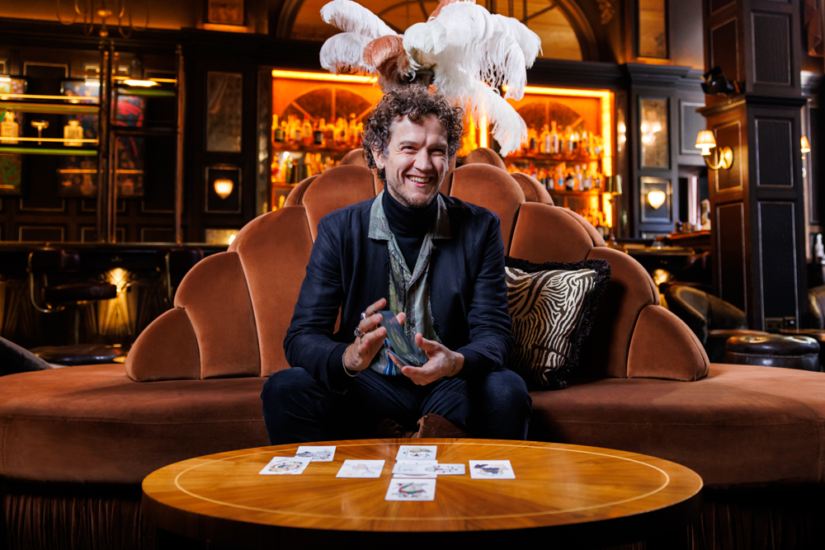10-min Daily Zen Routine to Beat Lockdown Blues
This calming, happiness-boosting, energising daily routine stemming from the ancient Japanese art of zen is the perfect way to beat lockdown blues. First practised over 1,000 years ago, zen is one of the key sources of the meditation and mindfulness trend that has
swept the West.
Worldwide studies have shown that meditation decreases the stress hormone cortisol and increases the release of dopamine (the chemical associated with feelings of pleasure) and also boosts our serotonin levels.
Depleted serotonin levels are associated with depression. So regular meditation can act like a natural anti-depressant and unlike prescription pills there are no nasty side effects. Plus with meditation, you get to know yourself on a deeper level and the
inward connection can sometimes lead to states of elevated consciousness – naturally blissful experiences that hardcore meditators sometimes refer to.
Here is a simple Zen routine you can practise daily to beat those blues:
1. Cultivate Gratitude
In Zen, there is an emphasis on cultivating an attitude of gratitude. Being grateful and focusing upon the blessings in our life helps to change our perspective about how we see life in general.
If we just focus upon our challenges and hardships, then this can have a negative impact on our health since thought follows attention. Instead, if we bring our attention to all the positiveness in our life, then that will attract more of it.

So spend a few minutes per day thinking about what you’re grateful for in life. This will elevate your happiness levels. We can even learn to be grateful for our most uncomfortable circumstances in life as they ultimately reveal what we need to heal and how we can grow.
And as the Zen proverb goes, ‘No mud, no lotus’.
2. Boost your energy
In Zen, it is believed that when the hara (the belly area) is strong and energized, you are powerful and grounded. When it is weak, we can feel overly emotional and susceptible to stress. There is a powerful breathing exercise you can do to cleanse the hara and immediately release stressful emotions (which are often stored in our gut area).

Simply inhale deeply through the nose and, as you exhale, make a strong ‘ha’ sound, gradually opening your mouth as wide as it comfortably goes. Repeat this 10 times.
3. Meditate
This can be either first thing in the morning or before you go to bed. Meditation reduces the stress hormone cortisol. It also alleviates existential angst – feelings of separation and isolation. It’s best to learn zazen (sitting meditation) working with a Zen teacher but you can still begin on your own.
Find a peaceful spot where you won’t be disturbed. First, stretch, wriggle, shake the body. Allow as much stress to discharge as you can and then return your body to an upright, balanced alignment. The key aspect to correct form is the relaxed poise in your trunk, spine long, chin drawn slightly back, hands in your lap, eyes soft and lowered.

When the body is poised and upright you can breathe well. In Zen we rest the attention on the movement of the abdomen, not trying to force or manipulate the breath but simply staying with the sensations generated by this rising and sinking.
Start by mentally counting in-breath, one…out-breath, two. Inbreath, three…out-breath, four. And so on, up to ten, when you can start again at one. It’s very simple. Just counting. Just breathing. Any thoughts, feelings, memories, anything at all, can arise, stay around and pass – but your focus point, the centre of your attention, is the breathing deep down in your body. Any time you get distracted and lose count, just come back to your breath and start again at one. As your mind becomes more focused and concentrated, naturally you’ll find your breath softens. As your breath becomes more light and gentle, your body becomes more and more relaxed and comfortable.
4. Let go of any emotional pain
For many people, painful emotions have a more prominent place in life than physical pain. Guilt, lack of confidence, grief, anxiety and despair can colour our life. The Zen secret to working with emotional pain is found in the acronym AA – awareness and acceptance.

With Zen, we simply treat our emotions like floating clouds that come and go. When we stay aware of our emotional pain, without avoidance or judgement, simply accepting it as it arises, extraordinary transformation and healing can happen. We can view pain as a messenger trying to communicate with us and point out disharmonies in how we are living. Sometimes the acceptance is enough to heal the suffering and sometimes there’s a further step – acting in a kinder, wiser way going forward.
Try practising this routine every day and see how it makes you feel…
Julian Daizan Skinner is London’s leading zen teacher, founder of Zenways and author of Practical Zen: Meditation and Beyond, available from amazon.co.uk priced at £13.99




